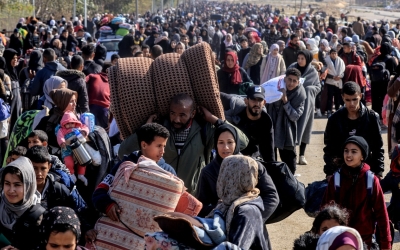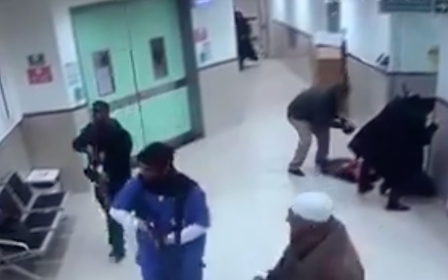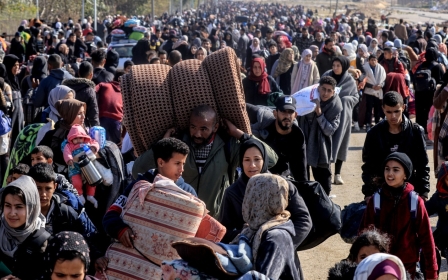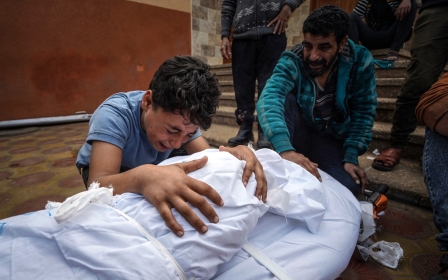War on Gaza: Israel bombed British doctors on 'de-conflicted' site in Gaza
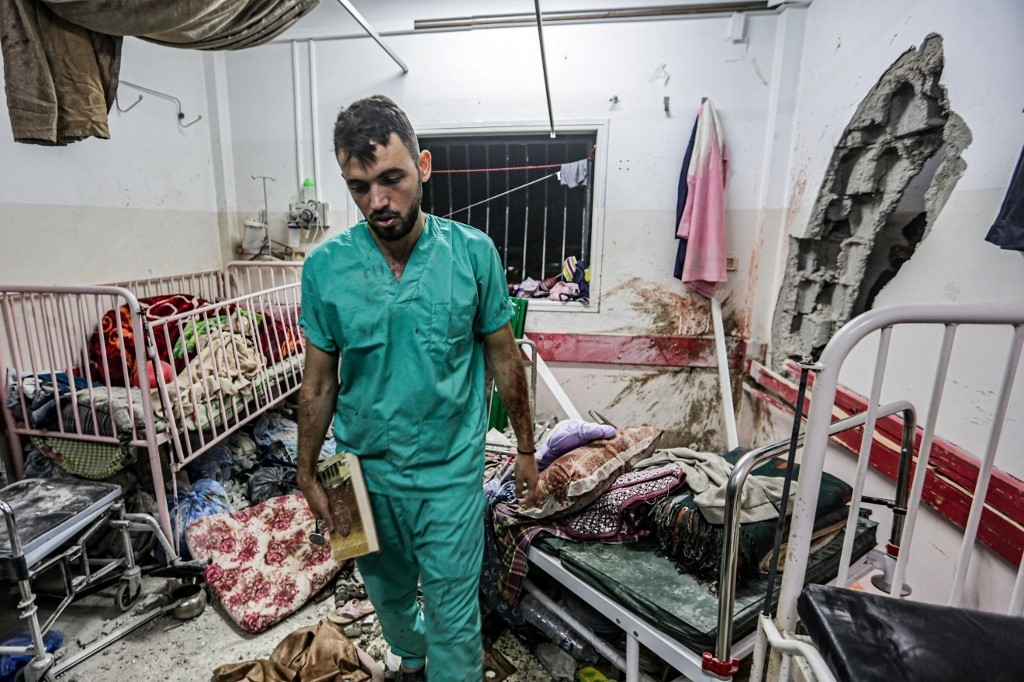
An Israeli air strike hit a compound in Gaza housing doctors working for a UK charity a month after the Israeli military told British counterparts the site had been "de-conflicted", MPs heard on Monday.
Foreign Affairs Committee chair and Conservative MP Alicia Kearns raised concerns about the attack during a parliamentary debate following Friday's ruling from the International Court of Justice in the Gaza genocide case against Israel.
The compound in the southern Gaza town of Al-Mawasi held staff from the UK's Medical Aid for Palestine (MAP) and the US-based International Rescue Committee (IRC), headed by former UK Foreign Secretary David Miliband, who were part of an emergency medical team working at nearby Nasser Hospital.
Around 6am on 18 January, the facility was hit by a bomb which Kearns said was dropped by an F-16 jet. MAP has previously said the strike left several of the staff and a bodyguard with non-life threatening injuries and severely damaged the compound.
"Thankfully, the four British doctors living there were only injured, although that itself is a cause for concern," Kearns said.
New MEE newsletter: Jerusalem Dispatch
Sign up to get the latest insights and analysis on Israel-Palestine, alongside Turkey Unpacked and other MEE newsletters
A month earlier, on 22 December, she said it was confirmed through UK defence channels that the Israeli military had "logged the co-ordinates of the humanitarian base and de-conflicted it, marking it as a protected sensitive and humanitarian site".
"I am gravely concerned that the air strike still took place," Kearns said, asking what the Israeli military's response had been and whether the government had seen targeting permissions for the strike.
Foreign Office minister Andrew Mitchell acknowledged the attack and said it had been raised by Foreign Secretary David Cameron in Israel last week and by the British ambassador in Israel, Simon Walters, but did not answer Kearns' specific questions.
"We continually remind the Israeli government of their duties under international humanitarian law," Mitchell said.
"The bombing of the compound is an extremely serious matter, which, as [Kearns] rightly said, needed to be raised at the highest level."
Following the bombing, the IRC and MAP said they were working with the UN to determine what had happened and to ensure "the continued safety of our teams and viability of their vital humanitarian work".
"We re-emphasise our call that humanitarian workers and civilians must be protected at all times from attack," MAP said earlier this month, declining to comment further until details were clarified.
The Israeli military told Middle East Eye that it "is operating to dismantle Hamas military and administrative capabilities" in response to Hamas' 7 October attack.
"In stark contrast to Hamas' intentional attacks on Israeli men, women and children, the IDF follows international law and takes feasible precautions to mitigate civilian harm," an Israeli military spokesperson said.
After Israel's bombardment of Gaza in 2008 and 2009, the UK government said Israel had used F-16 combat aircraft that "almost certainly" contained UK-made components.
On Tuesday, a spokesperson for the UK Department of Business and Trade said it keeps arms export licences "under careful and continual review" and is able to "amend, suspend, refuse or revoke licenses" when inconsistent with the UK's Strategic Export Licensing Criteria.
But the department would not say whether the 18 January strike involving an F-16 had specifically impacted arms export licensing or how.
MEE has also asked for comment from the British foreign office and the Ministry of Defence. MAP directed MEE to its earlier comments.
Nasser Hospital, the main medical facility in Khan Younis in the southern Gaza Strip where the emergency team had been working, has been under a siege imposed by Israeli forces earlier this month.
The facility has completely run out of food, anaesthetics and painkillers, Dr Ashraf al-Qudra, a spokesperson for the Palestinian health ministry in Gaza told MEE last week.
Only 10 percent of its personnel were working as of last week under conditions the ministry called "inhumane".
Middle East Eye delivers independent and unrivalled coverage and analysis of the Middle East, North Africa and beyond. To learn more about republishing this content and the associated fees, please fill out this form. More about MEE can be found here.


